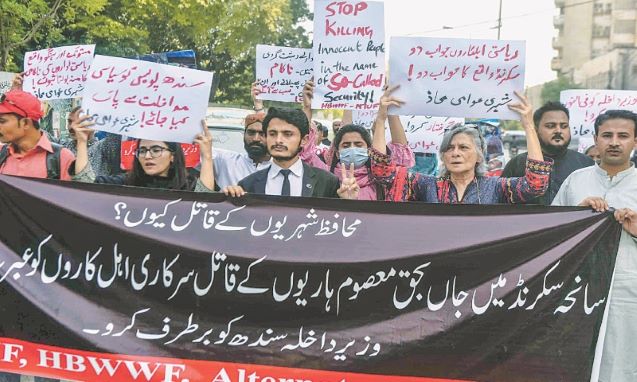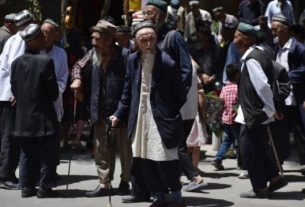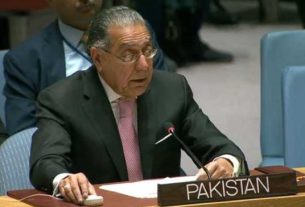HYDERABAD: A Human Rights Commission of Pakistan (HRCP) fact-finding mission that probed the killing of four locals of the Mari Jalbani village last month by security forces personnel has laid bare the mismanagement, miscommunication and abuse of process that led to the loss of innocent lives.
On Sept 28, at around 3pm, between 60-70 personnel of the Sindh Rangers and other law enforcement agencies had swooped in on Mari Jalbani, located in the Shaheed Benazirabad district, for a ‘security operation’.
A standoff with locals resulted in the deaths of four innocents and injuries to several others after the personnel intruded into a residential building. Four security officials were also injured in the clashes.
The same day, a Rangers press statement circulated on WhatsApp claimed high-profile militants had been killed during the operation. The Sindh caretaker home minister also termed the incident an attack on the Rangers, stating that an operation was being conducted to apprehend a suicide bomber but the suspects had attacked the team.
However, calls for an independent inquiry gathered force after the village residents blocked a section of the National Highway. An inquiry committee was subsequently set up by the caretaker Sindh chief minister, and a petition was also filed in the Sindh High Court about a week after the incident to seek the formation of a judicial commission. The HRCP had formed its own fact-finding mission on Oct 2 after meeting locals.
HRCP’s findings
The HRCP reports that on the afternoon of Sept 28, a 24-year-old student at the Shaheed Benazir Bhutto University of Veterinary and Animal Sciences, Liaquat Jalbani, was brought to the village in the custody of law enforcers.
Liaquat’s earlier whereabouts had been unknown. Locals said his face had been covered with a cloth to mask his identity. Police later told the HRCP that the security forces had picked him up only to use him as an ‘aide’ to help navigate the village.
A local eyewitness, Mithal Jalbani, said about 60-70 law enforcers, some in plain clothes and others wearing police and Rangers uniforms, entered a compound where villagers had set up makeshift homes.
They told the locals that they were looking for people who had committed electricity theft. Without warning, they began searching the house of one Allah Dad Jalbani. As they searched, Allah Dad’s neighbour, 35-year-old Sajawal Jalbani, accosted them.
After a verbal altercation, Sajawal challenged the security personnel, who responded by firing multiple shots. During the exchange, 30-year-old Nizam Din rushed to save Sajawal but was also shot dead. In the ensuing chaos, the security personnel retreated under cover of heavy firing. Six other villagers sustained bullet injuries.
Two of the villagers later succumbed to their wounds. “Meanwhile, 30-year-old Sarang, 55-year-old Allah Dad Jalbani, 32-year-old Imam Din and Ali Nawaz were admitted to a hospital,” the report said. Sarang and Ali Nawaz were later discharged.
Police account
The SSP Benazirabad told the mission that security agencies and Rangers had contacted him prior to the operation but had not correctly informed him regarding its objectives or intended targets. They had said they had credible information suggesting that certain miscreants were in the area and were planning to disrupt Eid Miladun Nabi or Rabiul Awal celebrations.
Acting on this intelligence, Liaquat Jalbani was picked up from his university as he was a resident of the village and law enforcers required a local to navigate the area for them. The SSP confirmed there had been no case registered against the student, nor did he have a criminal history.
The mission attempted to contact the spokesperson for Sindh Rangers, Maj Khawar Abbasi, as well as the caretaker home minister, retired Brig Haris Nawaz, for their perspectives, but got no response despite repeated requests.
“While the exact nature of threat prompting the operation remains unclear, state and law enforcement officials must take responsibility for deaths of four civilians and injuries sustained by others,” the HRCP said.
The team has also recommended that the investigation into the incident by the provincial government’s inquiry committee must be conducted fairly, comprehensively and with complete transparency.
“Additionally, those involved in the illegal capture of Liaquat Jalbani […] must also be prosecuted,” it said. It recommended that the government provide support and compensation to affected families and Liaquat.__dawn.com





